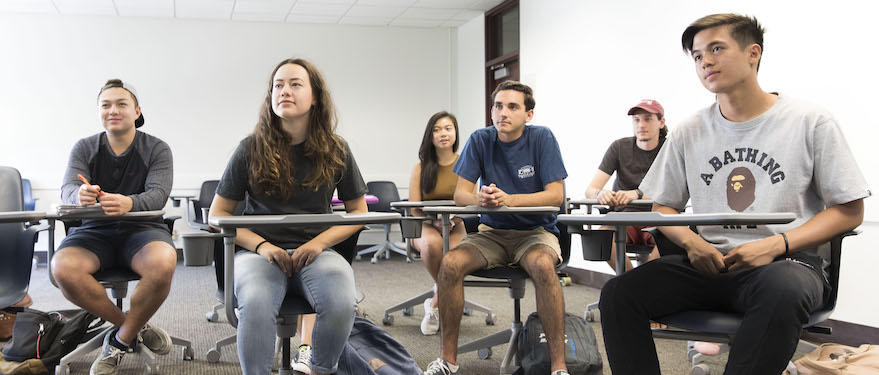Applied Physics

What is Applied Physics?
LMU's Applied Physics major is an interdisciplinary program that integrates the core physics curriculum with those of other majors. Students will learn how to comprehend the concepts and theories of classical and modern physics, as well as the discoveries and inquiries of contemporary physics.
By combining different perspectives, tools and ideas, Applied Physics majors will be prepared to address some of today’s and tomorrow’s most challenging problems.
This hands-on research experience with faculty from Applied Physics and other disciplines exposes students to the type of work encountered in graduate school and industry, and enhances their undergraduate portfolio.
What do Applied Physics majors do?
Applied Physics majors study core areas of physics: classical, quantum, and relativistic physics.
Students will choose the appropriate sequence of courses that matches their career aspirations in consultation with their advisor. In addition to regular coursework, all Applied Physics majors must complete a senior thesis project as a graduation requirement. This hands-on research experience with Applied Physics faculty exposes students to the type of work encountered in graduate school and industry, and enhances their undergraduate portfolio. Upon graduation, Applied Physics students can pursue advanced studies in a variety of physics-related disciplines, as well as in fields such as medicine, business management, and law, where an Applied Physics major can utilize their problem-solving and critical thinking skills.
Is this major right for you?
You might be an Applied Physics major if you:
- Are both creative and disciplined
- Like to ask questions about the world around us
- Seek to know how things work
- Enjoy using math and science
About our faculty
Our faculty members are experts in fields such as quantum theory, theoretical cosmology, the mystery of large-scale structure of galaxies, the behavior of various soft-condensed matter systems, the science of art, physics education research, high-resolution stellar spectroscopy, and calculating long-term correlations between spins in many-body magnetic systems.
Our faculty members are active researchers and writers who regularly present their work at conferences, publish papers in prestigious journals, and write textbooks such as College Physics and University Physics. Faculty members have earned NASA fellowships and National Science Foundation grants, tracked satellites, and designed and built spectrographs for observatory telescopes.
About our students and graduates
Our students earn internships, work closely with professors on research projects, present their work at scientific conferences and in journals, and participate in the Sigma Xi research honor society.
LMU students majoring or minoring in Physics prepare for graduate study in fields from bioengineering to law and medicine. They go on to careers as university professors, researchers in government and industrial labs, business leaders, and physicians. Our graduates have discovered new elementary particles, developed advanced military radar, worked on new photonic devices, taught at the high school and university level, and owned a high tech venture capital company.
Representative courses
Our courses have included:
- Introduction to Mechanics
- Introduction to Electricity and Magnetism
- Waves, Optics, and Thermodynamics
- Methods of Applied Physics
- Quantum Mechanics
- Electrodynamics
- Thermodynamics and Statistical Mechanics
- Microprocessor and Microcontroller Systems